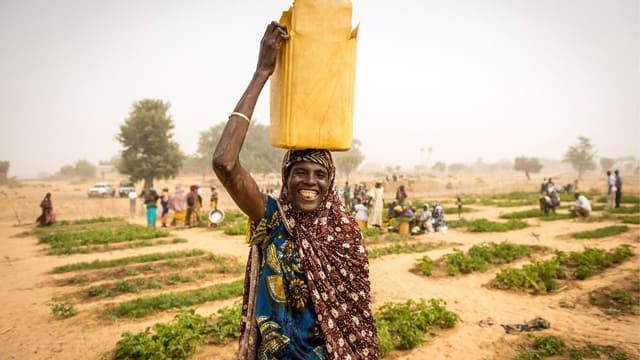The conflict in Niger escalated significantly on July 26, 2023, when a coup d’état occurred. The country’s presidential guard detained President Mohamed Bazoum, leading to General Abdourahamane Tchiani, the Commander of the Presidential Guard, declaring himself the leader of a military junta and establishing the National Council for the Safeguard of the Homeland1. This coup was driven by internal factors, including a deteriorating security situation in Niger, and the events following the coup have broader implications for Western interests, mirroring the fast post-coup developments seen in Mali and Burkina Faso2.

Image credit: Sean Sheridan for Mercy Corps
Here’s a summarized timeline of the significant events post-coup:
- July 26: Soldiers detained President Bazoum, announced the coup, and closed the country’s borders.
- July 27: General Tchiani appointed himself head of the new military government, amidst unrest and international concern.
- July 29: The EU and France suspended financial support, urging a return to constitutional order.
- July 30: ECOWAS demanded Bazoum’s reinstatement, imposing financial sanctions on the coup leaders and Niger.
- July 31: Germany suspended direct support payments, and a planned bond issuance by Niger was cancelled.
- August 1: Niger reopened its borders with neighboring countries, while France, Italy, and Spain began evacuating their citizens.
- August 2: ECOWAS sent a delegation to negotiate with the military government, while Nigeria cut power to Niger.
- August 3: US President Joe Biden called for Bazoum’s release and the preservation of democracy in Niger.
- August 4: ECOWAS military chiefs agreed to a plan for a possible military intervention to respond to the crisis3.
The military coup’s aftermath has caused significant political and economic instability, drawing concern and reactions from the international community. Despite these challenges, there was a notable decrease in political violence and attacks on civilians in Niger during the first half of 2023, prior to the coup4. However, the situation has quickly deteriorated post-coup, with various international actors disengaging from Niger, as seen with the French forces’ negotiated disengagement on October 20, 20235.
Niger has a history of conflict that predates the recent coup in 2023. Here’s an overview of some notable conflicts and political turmoil in the country’s history:
- Post-Independence Era (1960 onwards):
- Tuareg Rebellion (1990-1995):
- This rebellion was a conflict between Tuareg rebel groups and the governments of Niger and Mali. Various factions and coalitions were involved, and the conflict ended with peace accords in 19953.
- Insurgency in the Maghreb (2002-present):
- This is an ongoing conflict involving various countries in the Maghreb region, including Niger. The conflict is primarily driven by Islamist militant groups, with various nations and international organizations involved in counter-insurgency efforts4.
- Geopolitical Factors:
- Niger’s geopolitical position, bordering seven countries, six of which have been facing crises, has contributed to its historical and ongoing susceptibility to conflict. This includes threats from military movements in neighboring Libya5.
- Ethnic and Economic Factors:
- Niger’s socio-economic landscape, characterized by poverty despite its rich uranium resources, alongside its location in the Sahel region (prone to climate change effects), has also been a backdrop for internal conflicts. Ethnic tensions and economic disparities often contribute to the unrest in the country6.
- Colonial Era (1885-1960):
- Before independence, Niger was a French colony beginning from 1885, which has had a lasting impact on the country’s socio-political landscape7.
With ongoing conflict, how safe is it still safe to travel to Niger?
Very nice post and right to the point. I am not sure if this is actually the best place to ask but do you people have any ideea where to get some professional writers? Thanks 🙂